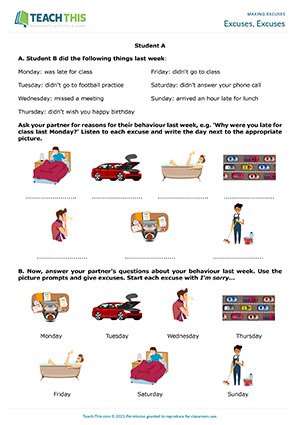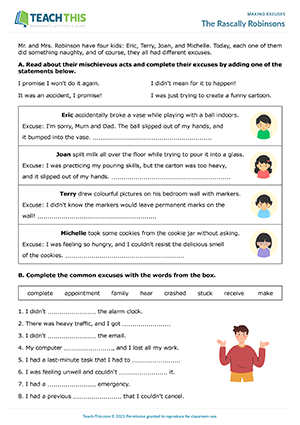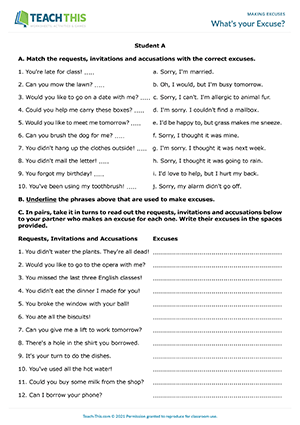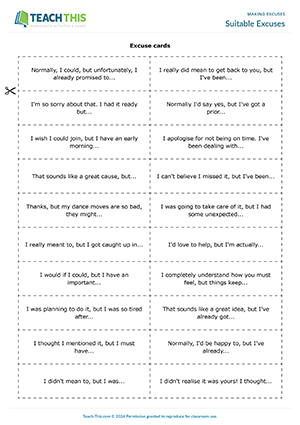Making Excuses ESL Activities, Games & Worksheets
Excuses, Excuses

ESL Making Excuses Activity - Speaking: Asking and Answering Questions - Pair Work
In this useful making excuses speaking activity, students practice apologising and giving excuses, starting with 'I'm sorry...' Student A looks at a diary of their partner's behaviour last week and asks for reasons for their actions, e.g. 'Why...
The Rascally Robinsons

ESL Making Excuses Worksheet - Vocabulary, Reading and Writing Exercises: Matching, Gap-fill, Categorising, Identifying, Writing Sentences
In this comprehensive making excuses worksheet, students learn how to make excuses for different transgressions. First, students read about...
What's your Excuse?

ESL Making Excuses Activity - Speaking: Matching, Identifying, Responding to Statements and Questions, Writing Sentences - Pair Work
In this free making excuses speaking activity, students use a variety of phrases to make excuses in response to requests, invitations and accusations. First...
Suitable Excuses

ESL Making Excuses Game - Speaking: Matching, Completing Sentences, Freer and Communicative Practice - Group Work
In this fun making excuses game, students race to match and complete excuses in response to requests, invitations, and accusations. In groups, one student turns over the first situation card and...
